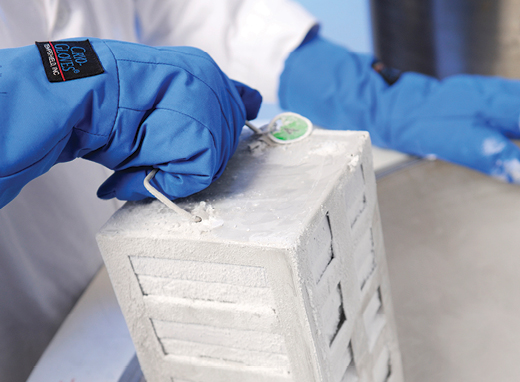Patients who have a biopsy or surgery connected to a breast cancer diagnosis at Winship Cancer Institute are often asked to allow some of their left-over tissue to be used in Emory’s breast tissue bank. Patients who consent are helping researchers at Emory and all across the country find answers to improving diagnosis, treatment, even prevention of breast cancer.
Winship set out to build a more comprehensive breast tissue bank in 2010. Today, Emory's breast tissue procurement and banking program, designed by three of Winship's leading breast cancer researchers and funded by the Wilbur and Hilda Glenn Family Foundation, has greatly expanded and is enabling researchers to more easily and more quickly find the breast tissue they need to move forward.
Expanding breast tissue collection and storage
Collecting and banking tissue of patients is not new. For years, surgical oncologists have taken tissue specimens during biopsies or operations to remove a tumor, tissue samples that allow them to make a diagnosis and, if found to be cancerous, to determine tumor type, size, and characteristics. They also use tissue specimens to make sure the margins (edges) of the excision are clean, meaning no cancer cells have been left behind. Part of the tissue sample is then stored, available if later needed by the clinician, perhaps to compare to a second tumor.
Diagnosis and treatment of the individual patient always will be the primary use for tissue samples, but researchers know the tissues also hold answers for all breast cancer patients. In the past, only a small percentage of tissues was available for research. Now, nearly all breast cancer patients seen at Emory are being asked if they will consent to having tissue left over from their clinical procedures be made available for use by breast cancer researchers.
"Almost all of them agree," says Sheryl Gabram-Mendola, expert in the surgical treatment of breast cancer for Winship and Grady Memorial Hospital. "There is no downside, and most women are eager to help other women who have or may develop breast cancer."
Full Story in Emory Winship Magazine »
Reprinted from Winship Magazine, Winship Cancer Institute, Emory University

